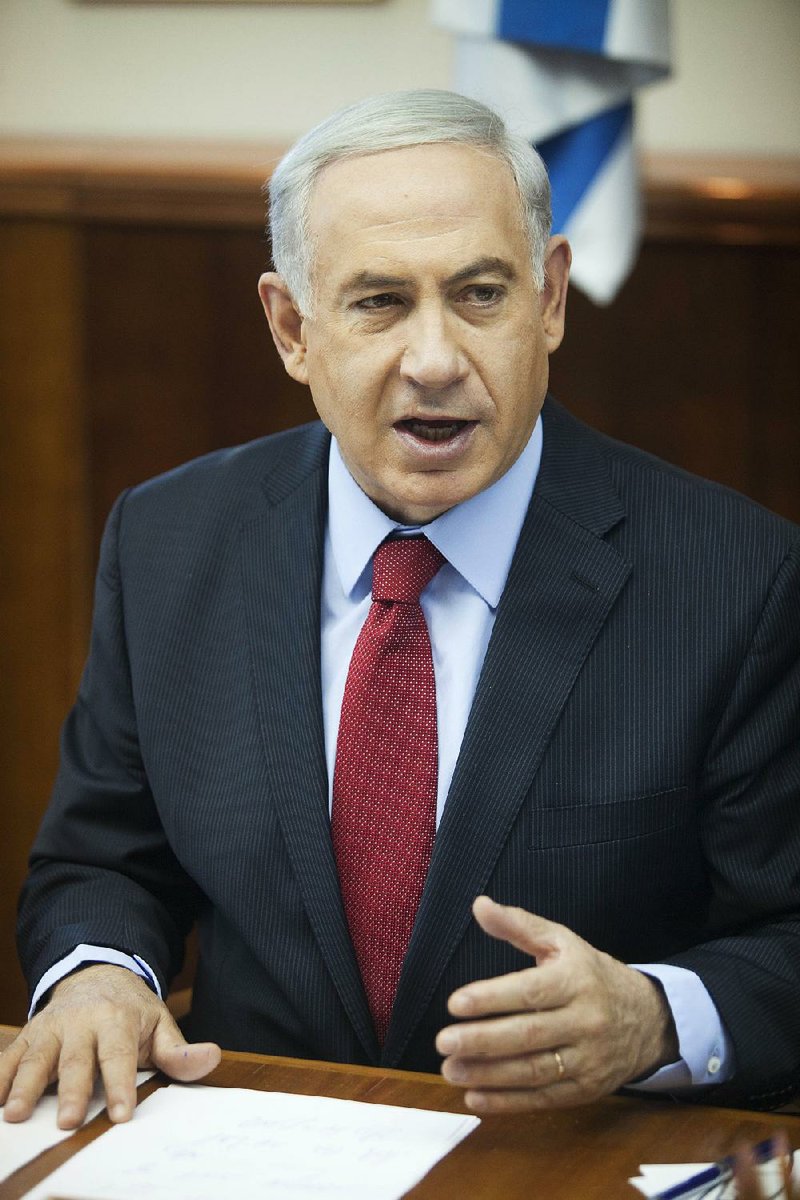TEL AVIV, Israel -- Seizing on the mayhem in Iraq, Israel's prime minister Sunday called for the establishment of an independent Kurdistan as part of a broader alliance with moderate forces across the region and asserted that Israel would have to maintain a long-term military presence in the West Bank to keep a jihadi juggernaut from powering its way to the outskirts of Tel Aviv.
Prime Minister Benjamin Netanyahu laid out his positions in a policy speech that marked one of the most detailed responses by a world leader to the lightning territorial gains made in recent weeks by Sunni extremists fighting in Iraq.
Netanyahu suggested that the territorial gains of the al-Qaida breakaway jihadi group called the Islamic State of Iraq and the Levant could endanger neighboring Jordan, with which Israel has a peace agreement that it considers vital to its security.
The offensive by the Islamic State's militants "can be aimed toward Jordan in the shortest time," Netanyahu said. Without stating outright that the Western-leaning Jordanian monarchy could fall, Netanyahu suggested as much by saying that the new developments meant a need for Israel to hold on to the West Bank border with the Hashemite kingdom, along the Jordan River.
"We must be able to stop the terrorism and fundamentalism that can reach us from the east at the Jordan line, and not in the suburbs of Tel Aviv," he said, implying that from Jordan, radicals could sweep through the West Bank, whose borders reach within 20 miles of Tel Aviv. The metropolis of some 2 million is the business and cultural center of the Jewish state and the engine of its increasing prosperity.
Netanyahu's endorsement of Kurdish independence, as well as his tough position on the West Bank, put him at odds with prevailing international opinion. And critics swiftly decried exploitation of violent events elsewhere to further an Israeli territorial ambition.
"Netanyahu is finding any pretext, any excuse, to justify his ideological policy of annexing the West Bank or maintaining the Israeli military control of all of Palestine including West Bank, and any development in the region or in Palestine is exploited to justify that," said Hanan Ashrawi, a senior figure in the Palestine Liberation Organization.
In Jordan, alongside concerns about the Islamic State, there has been some talk suggesting that the threat was blown out of proportion by Israel for its own purposes in recent days.
"I don't think [Islamic State] militants will invade Jordan," said Jordanian military expert Mamoun Abo Nowar, a retired air force general. "Israel is taking advantage of the [Islamic State] threats ... playing this game to negatively affect the Palestinian cause and deprive the Palestinians of an independent state."
The Palestinians seek all of the West Bank, captured by Israel in the 1967 Mideast war, as the heartland of a future independent state -- a position that is largely endorsed by the international community. The territory is flanked by Israel on the west and Jordan on the east.
While saying that there may someday be a peace agreement creating an independent Palestinian state, Netanyahu argued that Israel could not turn over its security needs to either the Palestinians or international forces. He said Palestinian forces are "not capable" of ensuring security, and foreign forces would eventually withdraw.
"Therefore we must understand that in any future agreement with the Palestinians, Israel will have to continue controlling security in the territory up to Jordan for a very long time," he said.
Netanyahu said the rise of al-Qaida-inspired Sunni extremists, as well as Iranian-backed Shiite forces, had created the opportunity for "enhanced regional cooperation." He said Jordan as well as the Kurds, who control an oil-rich autonomous region of northern Iraq, should be bolstered, calling the Kurds "a nation of fighters [who] have proved political commitment, political moderation and are worthy of independence."
In his statement, Netanyahu became the first significant world figure to call for Kurdish independence.
There was no immediate reaction from Iraq, the United States or other quarters.
The international community, including neighboring Turkey as well as the U.S. and other Western countries, opposes the breakup of Iraq.
Information for this article was contributed by Omar Akour of The Associated Press.
A Section on 06/30/2014

